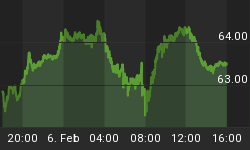In their infancy, financial markets looked far different than they do today. When markets and securities were brought about, they were created in order to provide capital to companies just starting as well as liquidity to owners and executives of existing companies. Many going concerns were becoming absolutely gigantic companies, and many owners and managers wanted to sell their shares for cash to do other things. At the same time, there were plenty of people who wanted to buy portions of these companies to share in the future earnings.
Back in those days FDIC didn't exist and there simply weren't safe places to put money. People fortunate enough to accumulate some savings often invested it in things like ships or timer land. Being able to buy into a company that was being run by knowledgeable, professional managers and might make investors even more money seemed like a great idea.
From the markets' early days there has always been a segment of pure speculation - people who didn't know anything about companies or economies, but were simply chasing hunches or tips. Over time, the amount of this "dumb money" has increased to such a degree that now most of the world's financial markets are little more than gambling pits.
These developments have left individuals with little chance of success in investing. Some may have an edge if they work for a company and know its culture and direction, or if they are studious people, willing to analyze the fundamentals of companies and industries in order to make informed decisions. Otherwise they're willing to put in such work, or to hire someone who does, "investors" might as well take their savings to a roulette table.
Over time, though, an entire industry has sprung up that has focused on helping to guide people with savings through the markets. Unfortunately, many of these advisors have had little more knowledge than their clients about how markets work. Quite often they've been more focused on finding clients than finding good investments. As a result, many have lost money for their clients.
And so, oddly enough, whole new theories have evolved to vindicate advisors. Concepts like diversification or modern portfolio theory have tried to explain why it's OK - even good - that advisors routinely pick SOME losing investments. These theories and their proponents postulate that every GOOD portfolio should have some winners and some losers.
Meanwhile, few members of the investing public have been told just who should be talking to for guidance. Few realize that there is a difference between a financial advisor/planner and a money manager. Many work with an advisor, who provides guidance and takes care of client needs; while few investors use a money manager, who spends their time researching the markets to makes strategic, informed decisions on investments.
In the world of finance, a financial plan is the equivalent of a road map, while investments are vehicles. A financial planner, in this world, is a map maker. They may be very good at making maps, but that doesn't mean they know what they're doing when they get out on the road. Conversely, a money manager is a driver who knows the lay of the land. They may not be a great map maker, but they can help avoid the speed traps and potholes.
Many of these managers "eat their own cooking" - that is, buy the same investments as they recommend to clients. Admittedly, they may not always be right when picking investments, but they certainly put in the time on research to improve their odds. The hope is that, over time, a money manager can outperform the shotgun approach of diversification. At the very least, they can help their clients to avoid the perils of the pit, and ignore the jawboning of stockjobbers.















